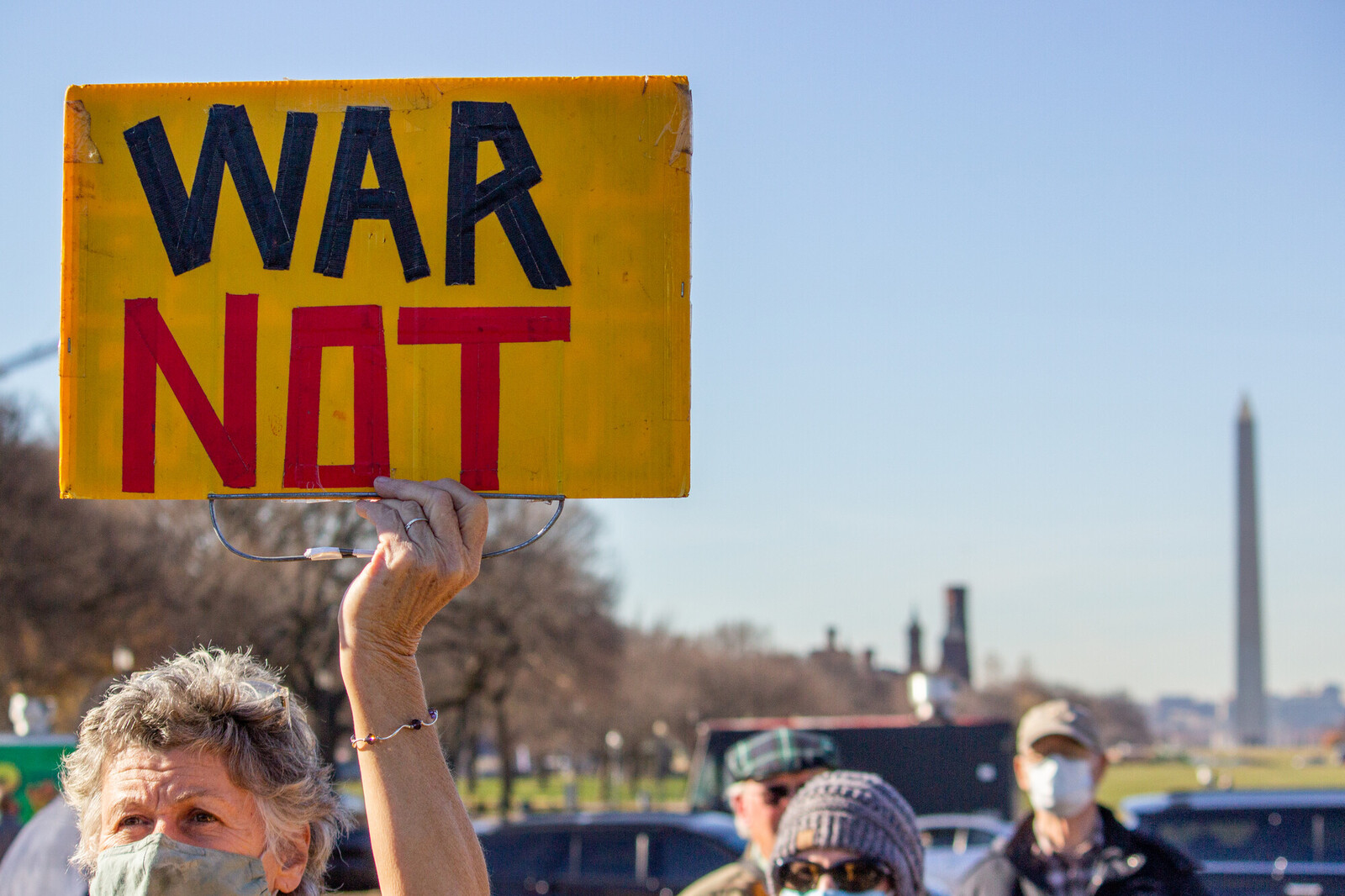
2021 rally in Washington, D.C. Photo: Carl Roose/AFSC
We know that to make life better for all our communities, we must invest in education, better paying jobs, and affordable health care. But sending weapons and military aid to conflict zones takes away from these programs that help many people make ends meet. It also takes away from programs that promote diplomacy and peacebuilding by bringing people together to solve problems.
In AFSC’s most recent study, we learned that most people in the U.S. agree. Here’s what we learned when we asked a representative sample of 1,000 U.S. adults about peacebuilding, diplomacy, and nonviolent engagement:
-
Most U.S. adults (54.5%) agree that the U.S. should pursue nonmilitary responses to conflict. That number increases to 59.8% after hearing AFSC’s messages about the human cost of war and how policymakers could reinvest military spending in programs that benefit everyone. This support comes from across demographic groups like race, gender, income, and age, as well as from service members, veterans, and their families.
-
Across the political spectrum, there is broad support for peacebuilding efforts. So many issues these days divide us against each other along political lines. But in our poll, we saw plurality or majority support across the political spectrum. Peacebuilding, diplomacy, and nonmilitary solutions to conflict—those are things that could actually bring us together, in a bigger call for supporting peace instead of war.
-
Significant majorities of U.S. adults agree that the U.S. should pursue nonmilitary engagement to prevent—as well as end—conflicts. In our study, 81% of people strongly or somewhat agreed that the U.S. should “work with other countries to build peace abroad to bridge differences and to prevent conflicts from erupting.” As well, 69.7% of respondents strongly or somewhat agreed that the U.S. should “work with other countries to build peace abroad to bridge differences between and to intervene in conflict zones.” Once again, we can come together to call for nonviolent interventions before conflicts erupt – or even once they have started.
Today it’s as important as ever that we collectively demand our leaders invest in programs that help people thrive and build peace around the world. Join with us to take action today.
